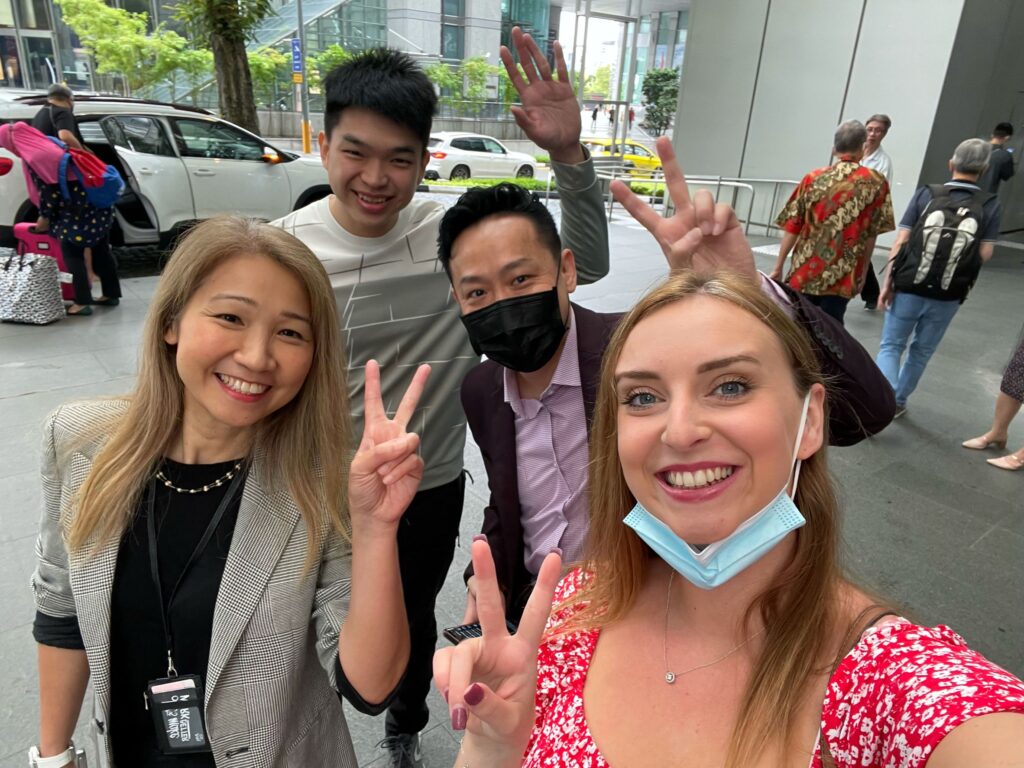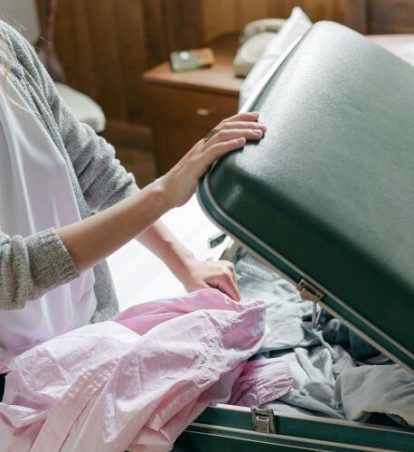Short-Term Assignments in Singapore: What You Need to Know
From the Diary of An Assignee in Singapore — Series Two
Welcome back to series 2 of 3 of the diary of an assignee in Singapore! In case you haven’t read the first series yet, I’m Laura and I’ve been assigned to live and work in Singapore for a month. I’ll be using this platform to share my experiences with those of you lucky people who might move to Singapore for a short-term stay assignment, relocation or business trip in the near future, sharing my experiences challenges and tips along the way.
Ready? Let’s get into it.
Two weeks or two years?
So I’m officially two weeks into my trip already (time does fly when you’re having fun), and I can’t quite believe how fast I’ve settled in. I think it’s because life in Singapore is just so…livable. It’s a small city. It’s clean. It’s safe. It’s easy to get around. The standard of serviced apartments in Singapore is excellent and there’s a thriving expat community. It’s essentially a business traveller’s haven here.

First thing first— get yourself connected
If you’re moving to Singapore for business, regardless of the duration of your stay, I’d 100% recommend you buy your own sim card.
Whether you’re mapping yourself to a new office for a meeting or ordering a Grab (Singapore’s equivalent to Uber) to avoid any heavy downpours of rain on the way to a business meeting, or gaining access to an office building as a visitor, you’ll find it a hell of a lot easier if you can do it all without relying on WiFi. You can rely on the WiFi across the city if you’d prefer, but for the sake of efficiency and avoiding running into any challenges prior to a business meeting, my recommendation is don’t take any chances and just get yourself a sim— punctuality to business meetings is important in Singapore.
You can get your sim card from the airport when you arrive, or you can do what I did and get one from any 7Eleven which offers a much better deal. I paid $15 for mine which gave me 100GB of internet for 28 days with a provider called Singtel. 7Elevens are everywhere, so it's highly likely you’ll find one just steps from your serviced apartment in Singapore.

Brush up on your office etiquette
My first two weeks living in Singapore have consisted of meeting a lot of different people, whether that be the Synergy APAC team, visiting our client's offices, or meeting our supply chain partners and their wonderful apartments across the city. To say I have seen a lot of what I read online about office etiquette and life in Singapore come into play here would be an understatement— below are the essentials you’ll need to know when moving to Singapore for business.
Hierarchy is everything—everyone has a distinct place within businesses in Singapore, and the seniors must always be treated with the utmost respect. The same goes for expats in Singapore. Some tips include:
- Always let the person with the highest rank make the initial introduction, let them take the lead at a business meeting and follow suit.
- At a business dinner, don’t pick up your cutlery and start eating until the most senior person at the table has done so first.
- Avoid giving overtly negative feedback, especially to a senior— saving face is very important in Singapore.
The handshake is a common greeting, and adding a slight bow will be appreciated.
Always be on time— punctuality is essential.
Office wear is your typical western, smart-casual attire, but be sure to check with your company first as some offices prefer to be more formal than others.

Business cards are a very important part of doing business in Singapore. You should take and receive the card with both hands and take a few seconds to observe the card.
Gift-giving is big here. When you present and receive a gift, make sure to do so with both hands. If you are receiving a gift, don’t open the gift until the gift giver leaves.
Office hours are usually around 9-6pm or 7pm. The Singaporeans are hard workers, but they do also make use of their lunch hour, typically with a large meal.
Business is typically conducted in English, but be prepared to hear many languages spoken in the office, including Mandarin Chinese, Singaporean Chinese, Malay or Tamil. Due to the mix of cultures in Singapore, you’ll likely also work alongside many Buddhists, Muslims or Christians and should be respectful of any religious standards they practice.
“Singlish” is common—and you’ll probably struggle to understand it! One thing that definitely caught me off guard was Singlish (a mixture of English and Chinese/Malay). I had heard of it. I knew what it was. But my goodness did I underestimate how little I would understand. You can brush up on your Singlish here, lah.
Bring Your Appetite
So you’ve navigated your first day in the office, you’re feeling a little bit peckish and to your pleasant surprise, you’ve found that Singaporeans love food just as much as you do—seriously, there are an obscene amount of eateries here.
Serviced accommodations in Singapore are usually fully furnished and come with a fully-equipped kitchen or at least a kitchenette. This is great for anyone looking for that added flexibility to eat in and out as and when they please, but it goes without saying that it’s an absolute must you try the local food as an expat in Singapore. It would be rude not to, right?
Where to find the best eateries when living in Singapore
Everywhere. They’re everywhere. On side streets, underground, in shopping malls, dedicated food courts and just about everything in between. You’ll be able to find something for pretty much everyone, and with any budget, within steps from your office or serviced apartment in Singapore.
Hawker Centres
If you’re looking to try the local cuisine, your first stop has got to be a hawker centre. These large complexes are full of countless colourful market stalls offering local food—from Chinese to Malay to Indian to Singaporean— at a fraction of the cost of a restaurant. We’re talking whole meals for $5 SGD (£3 GBP/$3.50 USD).
With so many stalls and food options on offer, it can be difficult to know where to start at a Hawker Centre, but the general rule of thumb is to just join the stall with the largest queue and you’ll be onto a winner. You’ll also find it useful to know that:

- Seating is first come first served, but it's commonplace to reserve a seat with…a pack of tissues. I LOVE this rule.
- Hawker centres typically only accept cash
- Always place your tray or plate in the designated areas and clean up after yourself. You will also need to be aware of where you leave your tray to respect Islamic halal dietary requirements.
- It can get busy and overwhelming for a foreigner, but my advice is to just embrace it in all its colorful madness.
If you’d feel more comfortable going to a restaurant or a café, fret not because there are hundreds of delicious eateries dotted all around the city, all of which I have of course made full use of during my time here. Some of my favourite restaurants and hawker centres so far include:
- People’s Park China Town— hawker centre
- Tekka Centre Little India— hawker centre— go on a Saturday to experience it in its full glory
- Curry Village— laidback Indian restaurant with river views and an amazing $10 lunch deal
- Lau Pa Sat— go after work as it’s not open during the day
- Toast Box— easy-going café chain that serves traditional toast, coffee and other traditional food
- LeNu Chef Wai’s noodle bar— the best noodles I have ever had. Ever.
- 328 Katong Laksa— for a taste of Singapore’s famous Laksa





So there you have it, the downlow of the essentials of how to best navigate your first week or so living as an expat in Singapore. I sincerely hope this guide has given you some insight, and a dash of excitement, into just how exhilarating it is to live and work in this incredible city— it’s been a truly unforgettable experience so far and I can’t wait to share more about my experience in series three. Stay tuned!
Check out the next blog in this series here: A Guide to Travelling and Working in Singapore





